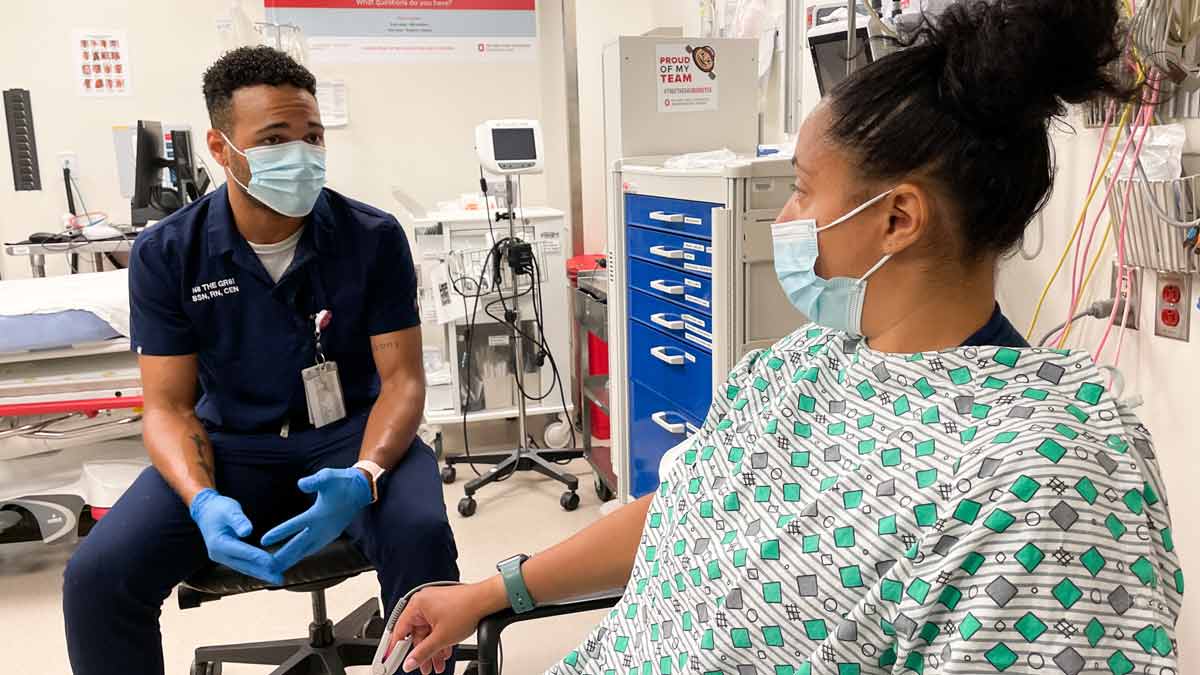What your doctor wants you to know about 'Dr. Google'

Healthcare providers know that when their patients experience illness symptoms, the first instinct isn’t always to call the doctor’s office – it’s to type those symptoms into a search engine.
Seeking health advice online isn’t always a bad thing – after all, we’re glad you’re reading this blog – but there are important things to keep in mind when checking with “Dr. Google”:
- Online sources vary widely in credibility.
- There’s a difference between health information accessible to healthcare providers and the online information available to the general public.
- Your healthcare provider can help put online information into context.
The best sources of information
Patients should be considered partners in their own medical care. As a primary care physician, I encourage patients to be active participants and, when they come into my office with information that they found online, it helps me understand what they know, what their sources are and what questions they may have.
However, this collaborative approach to health care has shown me how often patients can stumble upon websites not based on valid scientific studies. And when inaccurate information is treated as fact, it may cause harm to anyone who acts on its recommendations.
There are a number of reliable websites I typically suggest to patients instead, depending on what they’re researching. I suggest looking for URLs that end in .org or .gov, in particular. These include:
- The National Institutes of Health (http://nih.gov/health-information)
- American Diabetes Association (http://diabetes.org)
- The medication database Drugs.com (http://drugs.com)
- MedlinePlus, part of the U.S. Library of Medicine (http://medlineplus.gov)
- The American Academy of Family Physicians (http://familydoctor.org)
- The websites of other established academic medical centers like The Ohio State University Wexner Medical Center, such as the Mayo Clinic
The National Institutes of Health also provides a guide for evaluating the accuracy of health information and how to tell if what you’re reading is advertising or real, credible news.
When a doctor searches online
Your healthcare provider might sometimes use a computer while they’re with you to find extra information about your condition, drug interactions, unusual symptoms or to find resources to help you understand your diagnosis.
When providers use search engines to find information, they’re using medical training to phrase questions with medical terminology and in ways that effectively weed out unreliable results. Without medical education, it’s easier to jump to conclusions and worst-case scenarios, especially since Google doesn’t know your individual health history.
Providers also have access to different resources, many of which charge for subscriptions. Some of my favorites are UpToDate, Micromedex and VisualDX – all evidence-based, subscription databases designed to aid healthcare providers in narrowing down treatments and diagnoses.
Occasionally, I use Google Images to help patients understand anatomy related to a diagnosis, or how their medical condition might affect bodily functions. Images help patients understand what’s going on in their own bodies, and I always hope it helps them become more active partners in their care.
When Dr. Google isn’t cutting it
It’s impressive what’s available now for patient/provider communication. For patients of Ohio State Wexner Medical Center providers, especially, you won’t have to resort to searching online for health advice – you can easily ask a provider for personalized guidance.
In-person office visits are always the best method for comprehensive discussions because they allow more time to consider your medical history and other health factors. But check whether your healthcare provider’s office has an on-call phone service or nurse line.
Many providers are available via phone or even video chat for quick questions or follow-ups on medication prescriptions, recent visits or imaging/lab work.
Some healthcare plans even offer 24/7 nurse lines for medical questions. And many providers, including those at the Ohio State Wexner Medical Center, use online patient portals like MyChart for communicating via private message.
No online resource is a replacement for a visit to your doctor, but the internet is a valuable tool for collaborating to achieve your best health.
Riza Conroy is a family medicine physician at The Ohio State University Wexner Medical Center.




